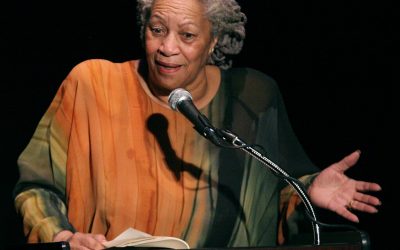Toni Morrison, born Chloe Ardelia Wofford on 18 February 1931 in Lorain, Ohio, was an American novelist, essayist, editor, teacher, and professor emeritus at Princeton University. Morrison’s work is celebrated for its profound narrative art and keen insight into the African American experience. She was awarded the Nobel Prize in Literature in 1993, becoming the first African American woman to receive this honour. Her contributions to literature and her exploration of Black identity in America have made her one of the most significant literary voices of the 20th and early 21st centuries.
Early life and education
Morrison grew up in a working-class family that valued storytelling, music, and the African American folk tradition. These elements would later become central themes in her work. She attended Howard University, where she studied English. Then, she went on to earn a Master of Arts from Cornell University. Her academic career was distinguished by her focus on African American literature, a subject she would later teach at various institutions, including Princeton University.
Literary Career
Morrison’s first novel, “The Bluest Eye” (1970), was critically acclaimed for its poignant exploration of race, beauty, and identity through the eyes of a young African American girl. However, “Sula” (1973) established Morrison as a significant literary figure, earning a nomination for the National Book Award.
Her third novel, “Song of Solomon” (1977), won the National Book Critics Circle Award and was a milestone in her career, bringing her national acclaim. The novel explores themes of African American identity and history, a recurring subject in Morrison’s work.
“Beloved” (1987), perhaps Morrison’s most celebrated work, won the Pulitzer Prize for Fiction. The novel is a haunting portrayal of a mother who makes a devastating choice during the era of slavery. It is widely regarded as a masterpiece of American literature.
Themes and legacy
Morrison’s novels are known for their epic themes, vivid dialogue, and richly detailed African American characters. Her work often focuses on the complex identities of Black people in the United States, the legacies of slavery, and the power of community. She has been praised for her lyrical prose and ability to weave the historical and personal together.
Beyond her novels, Morrison made significant contributions to literature as an editor for Random House, where she played a vital role in bringing Black literature to a broader audience. She also wrote essays, children’s books, and plays, further showcasing her versatility as a writer.
Toni Morrison’s legacy is that of a storyteller who gave voice to the voiceless and brought the complexities of Black American life to the forefront of literary discourse. Her work continues to inspire and challenge readers and writers alike. Morrison passed away on 5 August 2019, but her profound impact on literature and American culture endures. Morrison has left an indelible mark on the world through her novels, cementing her place as one of the greatest writers in American history.






Leave a Reply